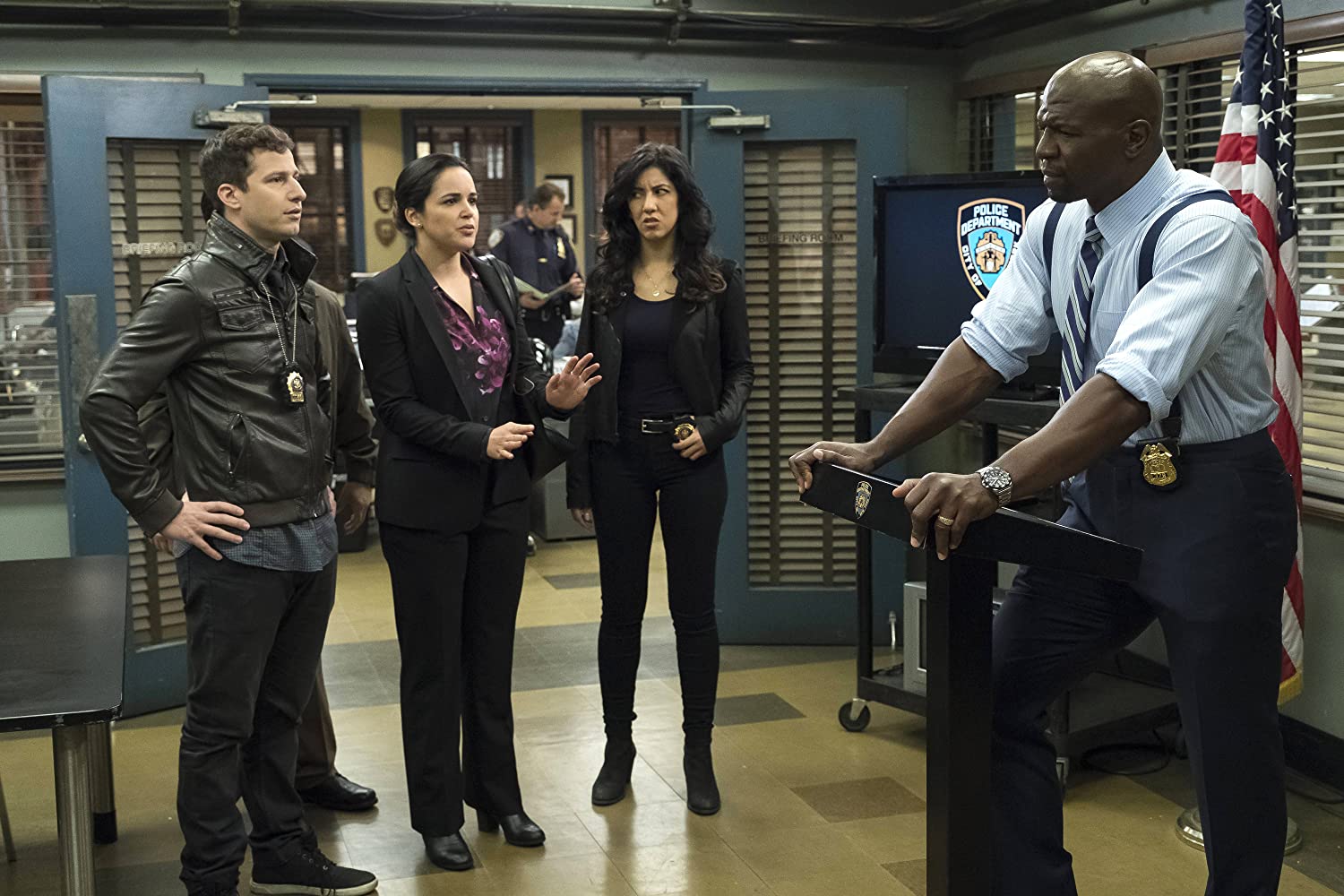As the nation confronts police in the streets, many of the people who have brought rosy depictions of American policing into our homes are having second thoughts. The cascade began when actor Griffin Newman, who played a detective on CBS’s Blue Bloods, tweeted a receipt of his $10,000 contribution to Community Justice Exchange. Soon after, his feed began to fill up with evidence of others following suit, from Brooklyn Nine-Nine star Stephanie Beatriz, who matched his contribution, to more modest donations from people who simply played cops in their high school plays, many of them donating through Act Blue and using the hashtag #BlueActorsActBlue. Beatriz later announced that the cast of her police sitcom, which premiered on Fox before moving to NBC, had pooled their resources to donate $100,000 to the National Bail Fund Network.
What we appear to be seeing is a moment of accountability for the people who’ve created and starred in the widespread depictions of American policing on television, in which the cops are almost always the good guys, even if some are more complex than others. And even when they’re not wholly good, they’re still the ones whose perspectives we see and whose feelings viewers are trained to empathize with. As Vulture’s Kathryn VanArendonk wrote on Monday, “The cops are still at the center, still the point of view we use to interpret the world, still the characters we follow week after week. As TV viewers we are locked inside a police perspective, harnessed to their needs, desires, and daily rhythms.”
The ramifications go beyond conscience-salving donations. Law & Order creator Dick Wolf announced Tuesday that he’d fired Craig Gore, a writer-producer on a forthcoming spinoff for NBC starring SVU’s Christopher Meloni, in response to social media posts in which Gore posed with what looked like an assault rifle and threatened to shoot looters. Among the other actors and writers who have spoken out or encouraged donations to anti-racist organizations are comedian Tom Scharpling, who was an executive producer on the USA Network procedural Monk, and actor Nathan Fillion, star of ABC’s The Rookie, along with Rookie creator Alexi Hawley.
But it’s also worth noting whom we haven’t heard from—namely most of the individuals associated with CBS, which has built its brand over the past 20 years on police procedurals like CSI, NCIS, Criminal Minds, Hawaii Five-O, and Blue Bloods, to name only a few, shows that generally portray police officers as not only noble and heroic but at times close to superhuman. Both prosecutors and defense attorneys have found themselves battling what they call “the CSI Effect,” when jurors steeped in show’s invented techniques are left unimpressed by real evidence that doesn’t come with flashy computer graphics achieved on a Hollywood budget. Defense attorneys have argued that techniques popularized by shows like CSI often amount to little more than guesswork, but to watch the show, you’d think they were little short of magic.
CBS may have tweeted out a corporate statement in (tepid) support of Black Lives Matter, and a few CBS stars, including NCIS: Los Angeles’ LL Cool J, have gotten more fiery, but a report on “Normalizing Injustice” released earlier this year found that the network was a prime offender in distorting Americans’ view of law enforcement and lagged far behind on diversity statistics as well. If the country is going to change its relationship to the police, that means shifting the way they’re depicted as well. That doesn’t mean every TV cop show has to be a hard-nosed exposé of misconduct on the force—as Aisha Harris wrote for Slate, it’s fine to escape into the fantasy of Brooklyn Nine-Nine’s harmoniously diverse, good-natured precinct, as long as you’re aware that it’s a fantasy. But the balance has to shift. It should reflect a world in which most people are subject to the police, and the police are not always subjects.
